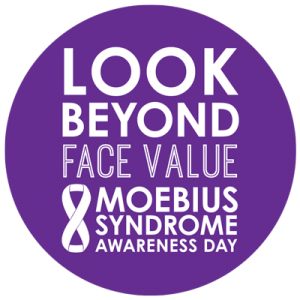 As we enter the New Year, it is time to prepare for Moebius Syndrome Awareness Day on January 24. While often ignored, a better understanding of this rare condition can lead to a better understanding of facial expressions – and the people who cannot show them.
As we enter the New Year, it is time to prepare for Moebius Syndrome Awareness Day on January 24. While often ignored, a better understanding of this rare condition can lead to a better understanding of facial expressions – and the people who cannot show them.
Moebius syndrome is characterized by a craniofacial/neurological disorder that results in facial paralysis, stifling the ability to exhibit basic emotional expressions like frowning or smiling. While Moebius syndrome is quite rare, affecting approximately 1 in 50,000 to 1 in 500,000, it profoundly affects the lives of those who live with it.
By being unable to show emotion through facial expression, Moebius syndrome poses distinctive challenges for social interaction. Dr. Kathleen Bogart, a psychologist who is afflicted by the condition but also studies it, has elaborated on this challenge.
Dr. Bogart explains how hard it is to reciprocate emotions without the benefit of facial expressions, saying “I wasn’t able to return [expressions]. I tried to do so with words and tone of voice, but it was no use. Stripped of the facial expression, the emotion just dies there, unshared. It just dies.”
Despite these challenges, Moebius syndrome does not prevent people from living happy and successful social lives.
Humintell’s Dr. David Matsumoto and Dr. Bogart have worked together to better understand how people without facial expressions cope. In a 2010 study, they found that Moebius syndrome does not prevent the recognition of emotions in other people’s faces.
This is notable, given the role of “facial mimicry” in developing emotion recognition skills. Most people learn to recognize emotional expressions by mirroring the expressions seen in others. This allows us to feel their emotions ourselves, helping us connect the visual presentation of an emotion with how we feel it ourselves. Because those with Moebius syndrome cannot do this, they must have found another way to recognize emotions.
Dr. Matsumoto explains that people can develop compensation skills, just as they would for other senses: “Just like for blind people, whose senses of touch, smell, hearing become sharper… Same thing here, I think, only it’s in the domain of nonverbal communication.”
This compensation takes several different forms. Matthew Joffe, a therapist with Moebius syndrome emphasized developing an expressive laugh and sense of humor. “I use humor a lot,” he explains, “It’s a way of showing my humanity, for one thing, and over the years people have said I have a great laugh… I have many different laughs for different occasions, each one looks distinct in my body”
Similarly, Dr. Bogart has learned to be an effective reader of people. “At a party, I feel like I can tell whether someone will be worth talking to within seconds… I can read people’s comfort level, or whether they can work through discomfort, very quickly.”
These tactics seem successful too! In another study by Dr. Bogart and Dr. Matsumoto, they found that participants with Moebius syndrome were no more likely to experience anxiety, depression, or general dissatisfaction with life.
For more information of Moebius syndrome, read Humintell’s past blogs here and here.
 Are you already stressed about your New Year’s resolution?
Are you already stressed about your New Year’s resolution? The Christmas season is certainly a happy time for many people, but it’s often hectic nature can cause a great deal of stress.
The Christmas season is certainly a happy time for many people, but it’s often hectic nature can cause a great deal of stress.